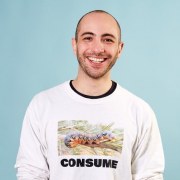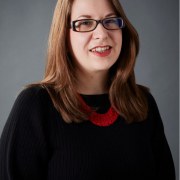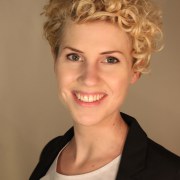Making space to talk about the climate crisis
In a world of challenging statistics, horrifying news stories and misinformation, many people are left looking for answers. Join us for a session where four museums and creators discuss how they have thoughtfully and creatively designed spaces and methods for visitors to engage with the complex and sometimes incomprehensible impacts of climate change, and what we can do to help fix it.
Each of our speakers has engaged their audience with the climate crisis in completely different ways: the Natural History Museum reached out to scientists to help curate a story of our impact on the planet, using older collections to tell compelling and relevant truths to our audience; Berlin's Museum für Naturkunde used impressive large scale imagery to show the impact of human activity; The Liminal Space joined with the University of Oxford to create the travelling exhibition Meat Your Persona, looking at the true impact of our food.
This session is part of the Biodiversity and climate crisis conference track.
Session speakers
Senior Interpretation Developer
The Natural History Museum
In 2021 the Natural History Museum opened its exhibition Our Broken Planet: How We Got Here and Ways to Fix it. Curated by an open call to our scientists this exhibition tells the many stories of how humans interact with the nature, from the food we eat to the materials we use and how we power our lives.
Creating the exhibition pushed us to be bolder than ever before - calling on governments and corporations for change, working with young activists and demonstrating some shocking statistics. But we wanted our visitors to be left feeling part of something bigger than them, with hope for the future and changes that they can call for.
Curator, Exhibitions and Knowledge Transfer
With ARTEFACTS the Museum für Naturkunde addressed the human impact on nature in a unique way by bringing together art and scientific facts. We aimed to sensitize visitors for the environmental problems and at the same time to trigger reflection about the human-nature relationship and their own as well as our collective behavior.
When we developed the exhibition, we felt the urge to take it one step further - from reflexion to dialogue. As a result we used the exhibition space as a place for spontaneous/ not structured encounters between visitors and scientists.
In these so called „Meet a scientist“ sessions visitors could - in an informal face-to-face setting – ask question, bring in their concerns or ideas about safe guarding our planet. We conducted some 100 sessions with scientists from museums, universities and our partner the Joint Research Centre of the EU Commission, which were embraced by visitors and scientists alike.
Our experiences with ARTEFACTS motivates us to further explore what role museums can play as inclusive spaces for critical discussions, participation and mutual learning.
Natural History Museum Basel
Our earth is a unique planet. Life originated on it. Over thousands of years, humankind existed without leaving a profound mark on the environment. In the meantime, our constantly growing need for space and natural resources is putting pressure on ecosystems around the world. The exhibition EARTH AT ITS LIMITS explains our role in nature and asks questions: How is our planet? Which natural processes do we influence and what are the consequences for nature and for people? What are the long term consequences of our actions? How can we shape the future?
We would like to share our experiences and lessons learned: How to communicate serious impacts with a wider audience avoiding pitfalls of frustrating narration, or how to build a more sustainable exhibition. What were our experiences, and what would we like to integrate in our future exhibitions.
The Liminal Space bring complex topics to life in imaginative ways that audiences can relate to. Breaking down the walls of the museum, we take content to the streets and connect it to people’s lives. Meat Your Persona, based on research from the Livestock, Environment and People (LEAP) programme at the University of Oxford, was an eye-catching installation that popped-up in shopping centres, on busy pedestrian areas and at festivals, translating complex content into digestible formats for over 150,000 members of the general public. The bright yellow horse box travelled across the UK starting evidence-based discussions about the connection between meat consumption and the climate crisis, and empowering audiences to be part of the change.





